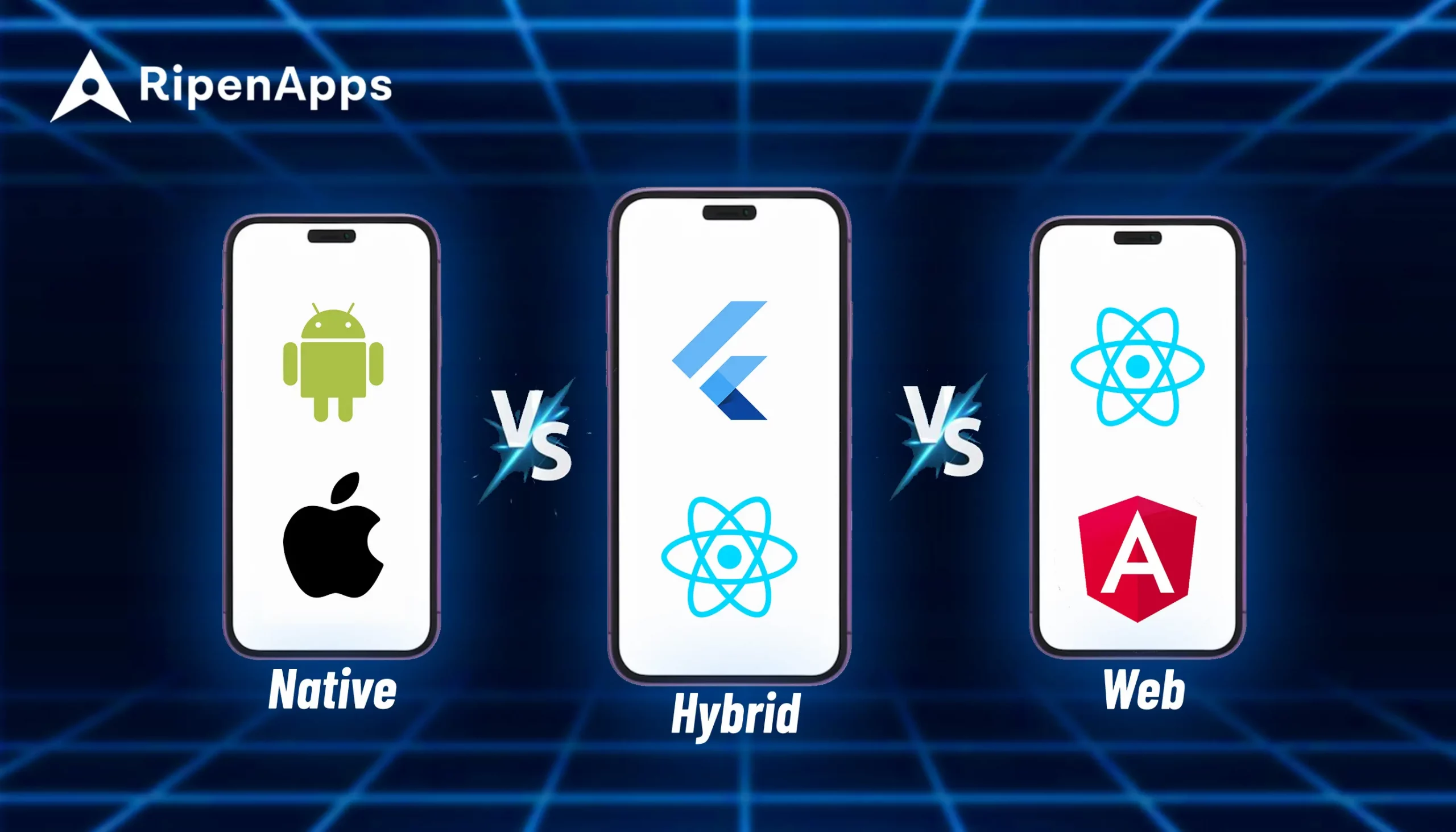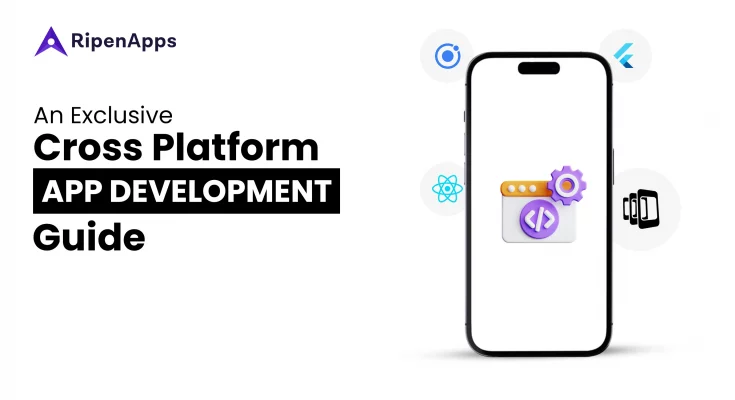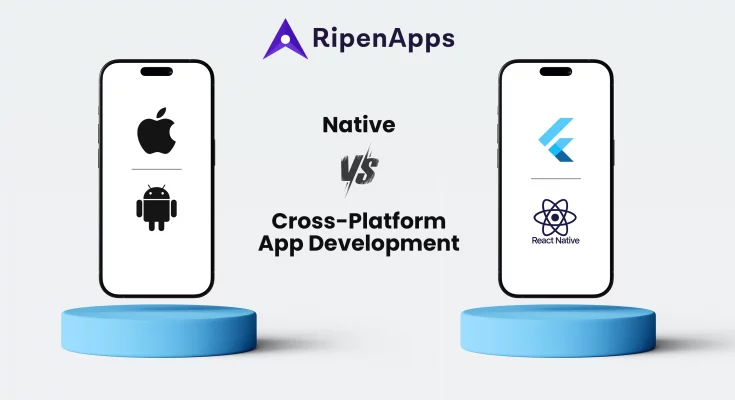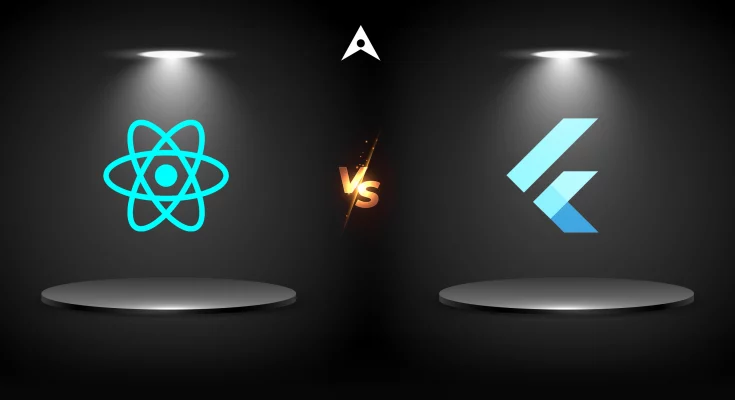Choosing between Native, Hybrid, or Web for mobile app development is not only a decision, it’s a strategic move that will define your mobile app success or growth.
With the development of the mobile app development world, we have been constantly witnessing something more and more innovative with every passing day. With business all around the world is harnessing the power of mobile app technology to expand their limits across the globe, the next big question that has popped out of the mobile app development industry is about the choices among native, hybrid, or web apps.
Though we are not going to give you the verdict in terms of best or worse instead will provide you with a detailed analysis as per our views on it.Before we give our head to the battle of these app technologies, let’s first understand each of them in brief.
Table of Contents
What’s the Difference Between Web Apps, Native Apps, and Hybrid Apps?
If you are looking to invest in a custom mobile app development, then you might be confused about which type of app you need to build. That’s why, you need to first understand the difference between Native, Hybrid, or web app development.
Native apps are specially for a specific operating system(iOS or Android) that offers high performance. Hybrid apps combine elements from both OS which allow you to deploy the app on multiple platforms. Whereas, mobile web apps are those which run in browsers. They are also responsible across multiple devices.
What are Native Applications?
A native application is intended to keep running on a particular portable operating system. It won’t keep running on other portable operating systems. Along these lines, for instance, on the off chance that you would develop up a native application for iOS you’d do the development in Swift.
The greatest points of interest to native applications are that they can easily get to all the functionality of the chosen gadget effortlessly and that they are more probable if grew appropriately, to keep the best application for running without blunder on the gadget. To build an intuitive native app without any glitches, you can connect with a leading mobile app development company in USA.
Be that as it may, this accompanies an exchange off. A native application can’t keep running on a gadget which doesn’t use the same operating system. That implies that if you want to run your application on Windows, iOS 7, and Android, you will need to develop up the application 3 times, once for each operating system. This can influence the development to process both slower and more costly.
Popular native apps examples: Instagram, Spotify, Whatsapp, Uber, Pinterest
What are Hybrid Mobile Applications?
What is hybrid app? A hybrid mobile app is intended to take a shot at different platforms. It’s composed utilizing a solitary standard code language, (for example, C# or a mix of HTML5 and Javascript) and after that gathered to be executed on every platform. Certain device based interactions will regularly be overseen by the utilization of modules for that operating system. Before building your hybrid mobile app, you can discuss with a top-notch cross platform app development company to have better clarity.
The greatest advantage of Hybrid mobile apps is that they empower bolster for numerous operating systems at a more financially savvy value point than developing up various native applications. Clients, as long as the development is done well, won’t regularly have the capacity to recognize whether an application is native or hybrid. In fact users, all in all, couldn’t care less about how your application is created – they simply mind on the off chance that it chips away at their gadget and does what they anticipate that it will do.
One of the major disadvantages of having a cross-platform application is that can give hard times if the app requires to intricate interactions with the gadget since there is a limit of adding the plugins in this app platform. The cost of a hybrid mobile app is slightly more than that of the native applications.
Popular hybrid apps examples : Twitter, Gmail, Amazon app store
Read Also: Key Future Trends That Will Dominate The Cross Platform Mobile App Development
What are Web Applications?
The web browser has web applications. How are web applications not the same as a website? A website ordinarily furnishes users with significantly more data that is useful to show on a mobile website, while a mobile web app consolidates this data to enhance usefulness.
If we compare native vs web applications, nonetheless, don’t need to be downloaded from application stores like mobile applications. Web applications stack in a browser like Chrome, Safari, or Firefox. A web application additionally doesn’t take up space on the user’s gadget.
People are considering web and app development as new advances which obscure the lines between web, native and Hybrid applications. It’s hard to recognize which applications are web applications, which are hybrid mobile applications, and which are websites worked with a responsive plan.
The major advantage of having an application web is that they are cost-effective and doesn’t take up the memory of the gadgets while other apps like a hybrid or native require a certain space to run. They are accessible to every device regardless of their operating system, be it Android, iOS or even windows since they run on browsers.
Slow speed and poor user experience are few of those disadvantages which contribute considerably well in the limitation chart of web apps. Being less interactive and intuitive is another major factor which compels the user to overlook the web app. However, to overcome such challenges, you can avail professional UI UX design services from a well-recognized company.
Read Also : A Guide On Web & Mobile App Development Using AngularJS Framework
Conclusion
Considering your business targets and general objectives, this choice could represent the moment of truth the accomplishment of your mobile stratagem. When choosing between a hybrid app vs a native app vs web app to develop your application as either web, native, or hybrid, there are a variety of above-mentioned factors you have to consider. The mobile apps offer a noteworthy chance to business visionaries. Mobile applications are moderately shabby and simple to create. Picking the best mobile app development company is the basic to deliver the better customer experience. By understanding the contrasts between hybrid, web or native, you can settle on the correct choice for your business.











 India
India USA
USA Australia
Australia Canada
Canada UK
UK UAE
UAE
